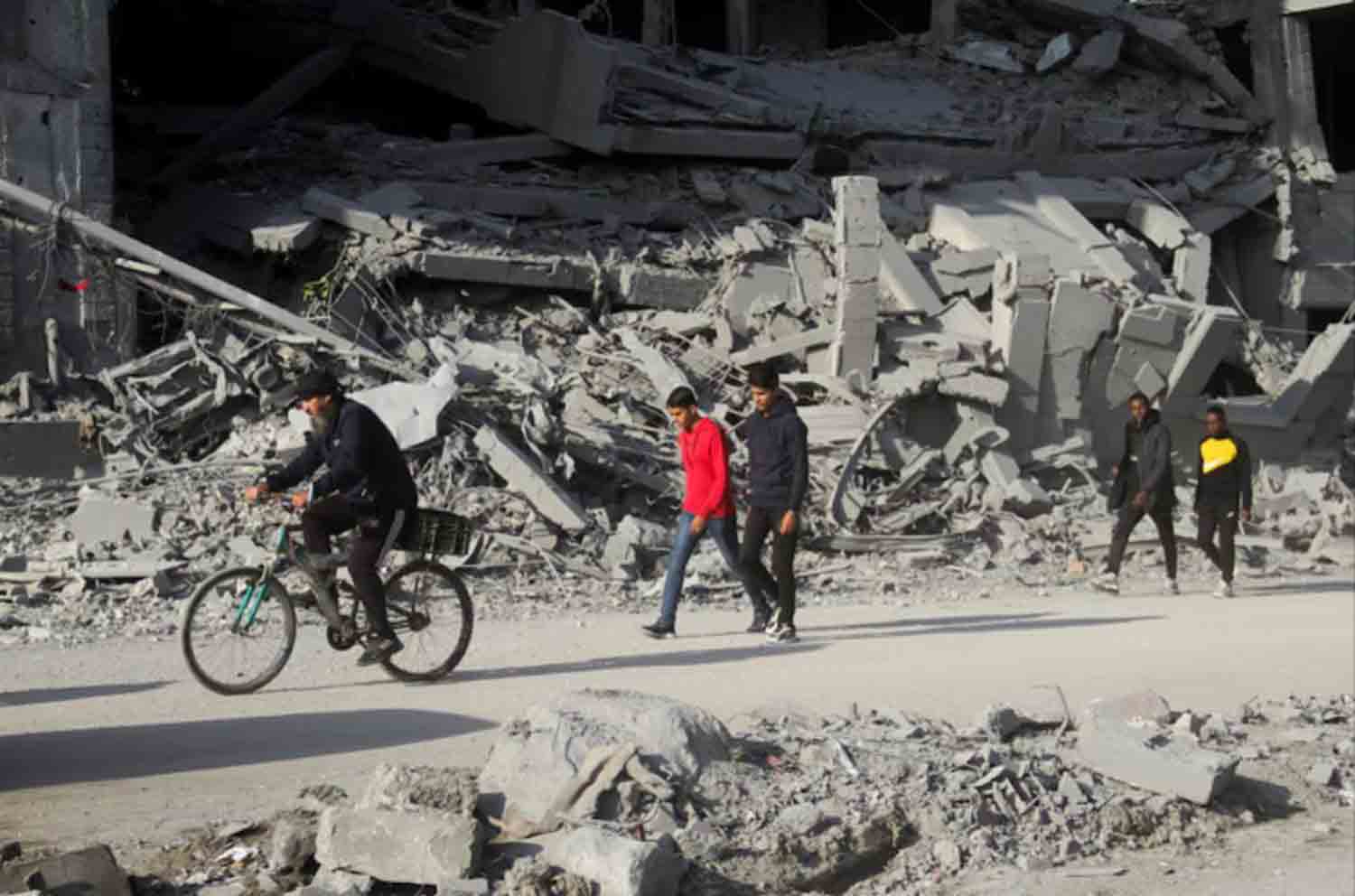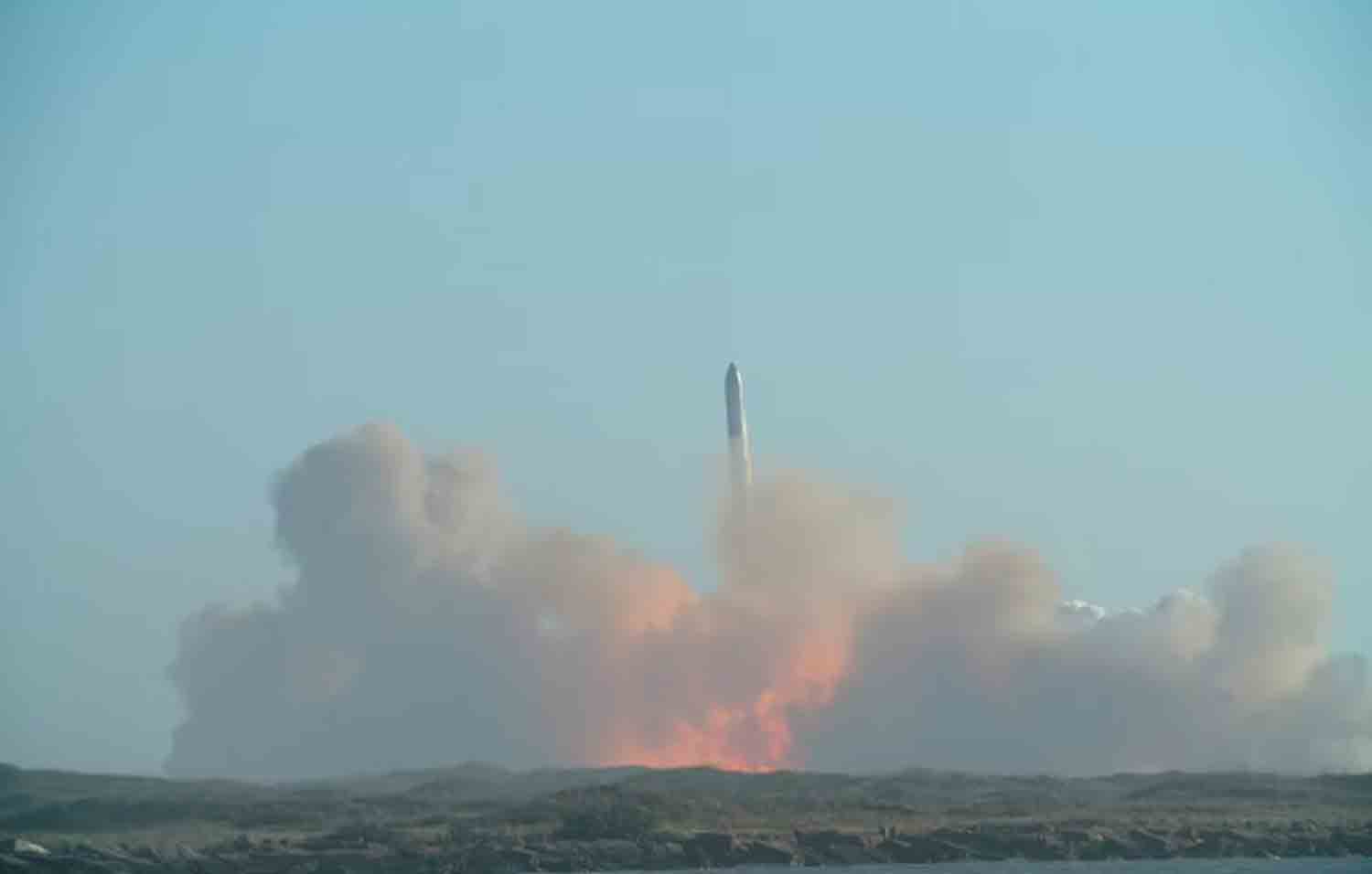Israel has postponed the approval of a ceasefire agreement with the Palestinian militant group Hamas, which includes the release of hostages in the Gaza Strip. However, the United States has indicated that it still anticipates the agreement will take effect on Sunday as originally scheduled.
In Gaza, Israeli airstrikes continued to be intense, with Palestinian authorities reporting that at least 86 individuals lost their lives on the day following the announcement of the truce.
Amid visible divisions among ministers, Israel delayed the cabinet meetings that were set for Thursday to vote on the agreement, attributing the delay to Hamas. Reports from Israeli media suggest that the vote may take place on Friday or Saturday, with expectations that the accord will ultimately receive approval.
White House spokesperson John Kirby expressed confidence that the agreement remains on track, stating that a ceasefire in the ongoing 15-month conflict is likely to commence “as soon as late this weekend.”
Kirby noted on CNN that there are no indications suggesting the agreement will be derailed at this time. Meanwhile, a group representing families of Israeli hostages in Gaza, including 33 individuals slated for release in the initial six-week phase of the agreement, has urged Prime Minister Benjamin Netanyahu to expedite the process.
The group emphasized the urgency of the situation, stating, “For the 98 hostages, each night is another night of terrible nightmare. Do not delay their return even for one more night,” in a statement reported by Israeli media late on Thursday.
U.S. Secretary of State Antony Blinken stated earlier on Thursday that a “loose end” in the ongoing negotiations required resolution. A U.S. official, speaking on the condition of anonymity, indicated that the issue at hand involved the identities of certain prisoners that Hamas sought to have released. Representatives from President Joe Biden’s administration and President-elect Donald Trump’s team were in Doha, collaborating with Egyptian and Qatari mediators to address this matter, according to the official.
Hamas senior official Izzat el-Reshiq affirmed the group’s commitment to the ceasefire agreement.
VOTE EXPECTED FRIDAY OR SATURDAY
In Gaza, the initial joy over the ceasefire quickly turned to grief and anger due to the intensified bombardment that ensued following the ceasefire announcement on Wednesday. Tamer Abu Shaaban’s voice trembled as he stood beside the small body of his young niece, wrapped in a white shroud at a morgue in Gaza City. She had been struck in the back by missile shrapnel while playing in the yard of a school where the family was taking refuge, he recounted. “Is this the truce they are discussing? What did this young girl, this child, do to deserve this?” he lamented.
Israel’s acceptance of the agreement will not be finalized until it receives approval from the security cabinet and the government. Prime Minister Netanyahu delayed the vote, accusing Hamas of introducing last-minute demands. “The Israeli cabinet will not meet until the mediators inform Israel that Hamas has agreed to all aspects of the deal,” stated Netanyahu’s office.
Israeli media sources indicated that the cabinet was anticipated to cast its vote on Friday or Saturday; however, the prime minister’s office refrained from commenting on the schedule. Some political analysts suggested that the commencement of the ceasefire, set for Sunday, might be postponed if Israel does not finalize its approval by Saturday. Hardliners within Netanyahu’s administration, who argue that the conflict has not met its goal of eliminating Hamas and should continue until it does, were still seeking to halt the agreement. Nonetheless, a majority of ministers were expected to support the deal and facilitate its ratification.
In Jerusalem, protests erupted as some Israelis marched through the streets carrying symbolic coffins in opposition to the ceasefire, obstructing roads and clashing with law enforcement. Other demonstrators blocked traffic until they were dispersed by security forces.
The ceasefire agreement was reached on Wednesday following negotiations involving Qatar, Egypt, and the United States. The arrangement includes an initial six-week ceasefire and a gradual withdrawal of Israeli troops. In return for the release of dozens of hostages taken by Hamas, including women, children, the elderly, and the sick, hundreds of Palestinian prisoners held in Israel would be freed. This agreement also aims to facilitate a significant increase in humanitarian aid to Gaza, where a large portion of the population has been displaced and is facing hunger, illness, and cold conditions.
Israel initiated its military campaign in Gaza after Hamas militants infiltrated Israeli border communities on October 7, 2023, resulting in the deaths of 1,200 soldiers and civilians and the abduction of over 250 hostages, according to Israeli reports. If the ceasefire is successful, it would bring an end to hostilities that have devastated much of densely populated Gaza, resulting in over 46,000 fatalities and displacing the majority of the enclave’s pre-war population of 2.3 million, as reported by Gaza authorities.
Discover more from Defence Talks | Defense News Hub, Military Updates, Security Insights
Subscribe to get the latest posts sent to your email.





